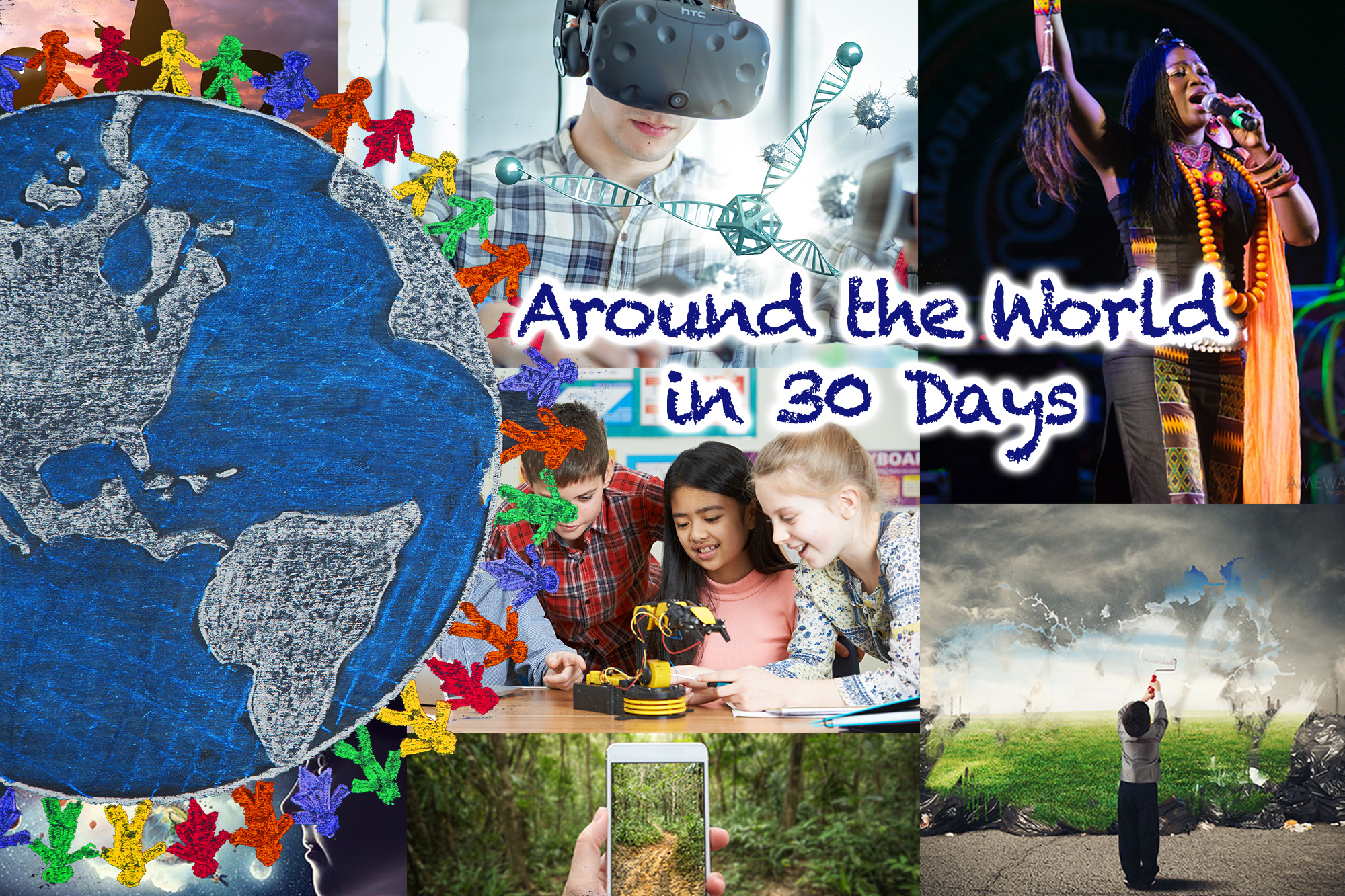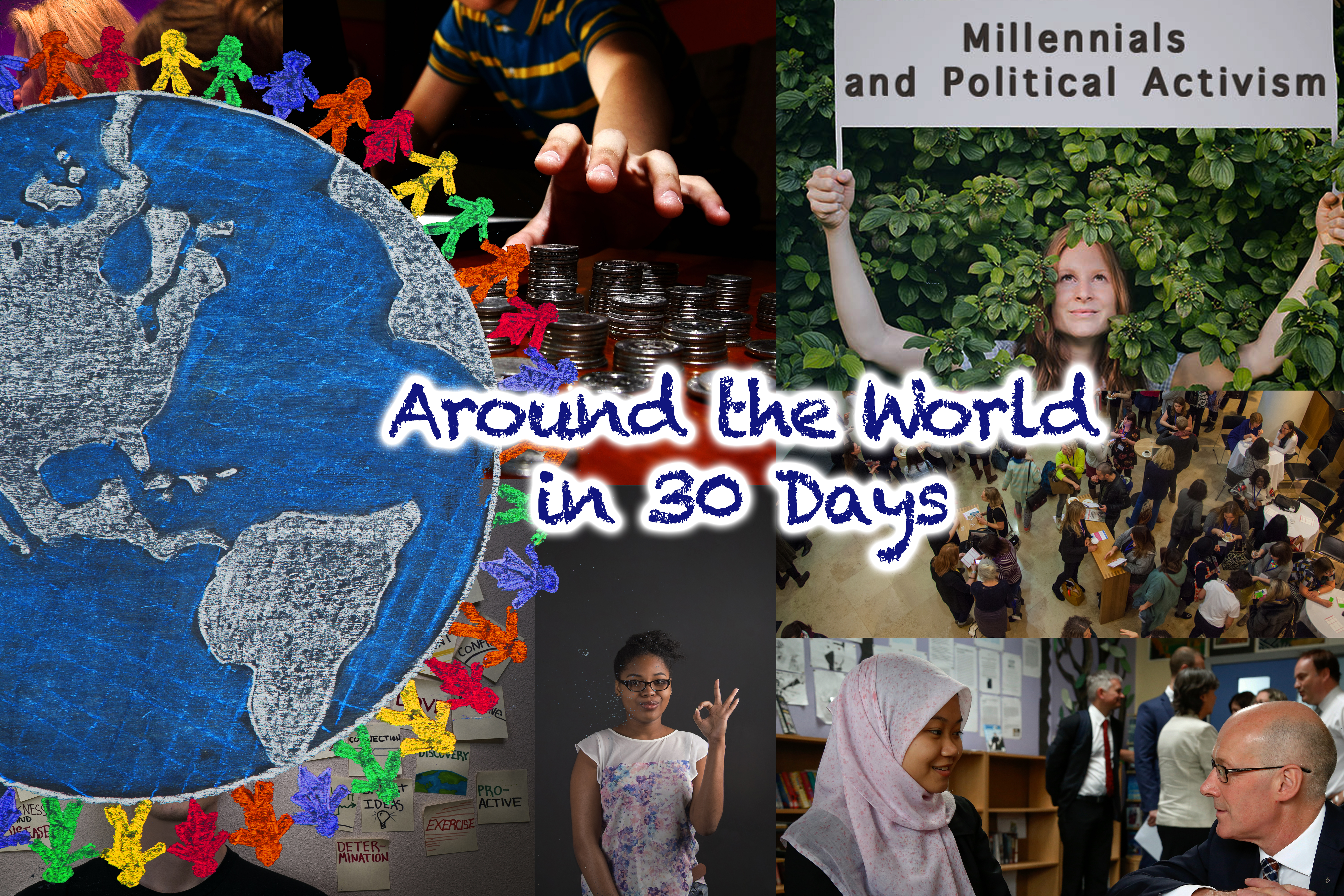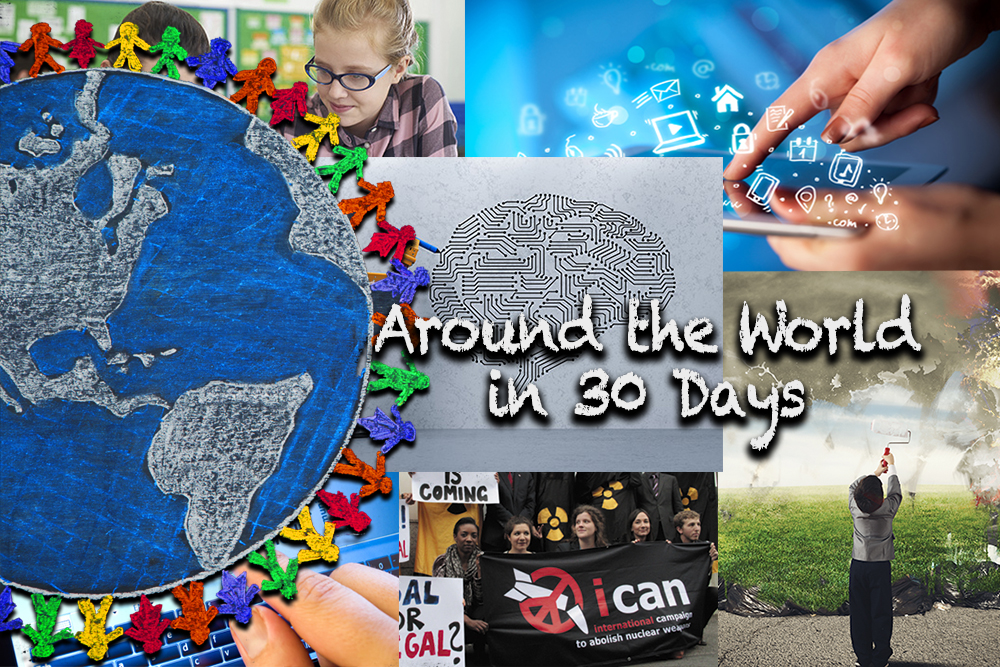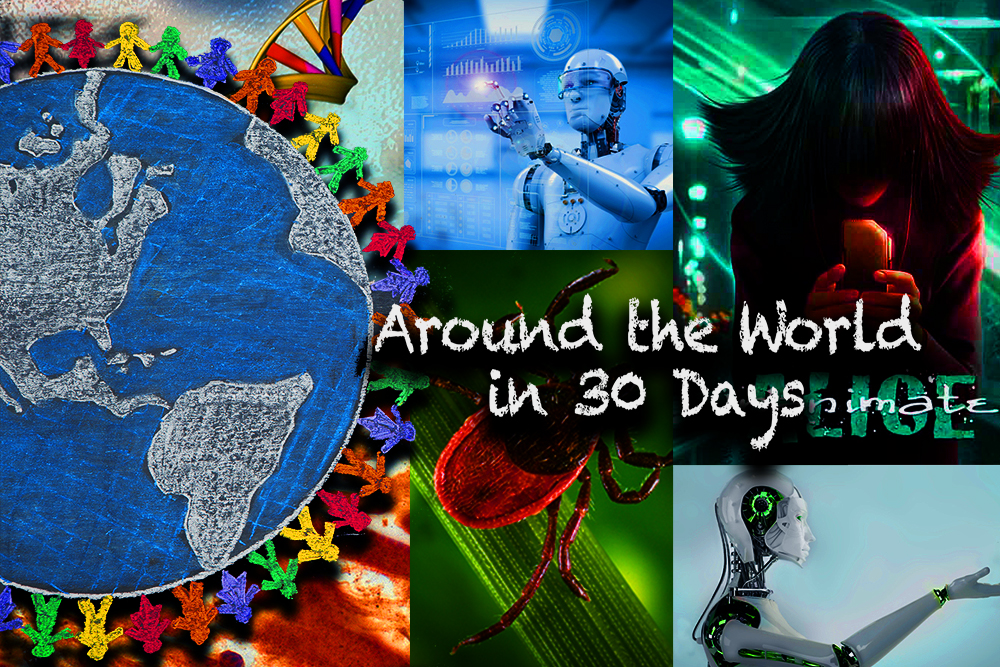Humanity faces a new set of challenges – we need an innovative set of solutions.
For over seven years, The Global Search for Education has been focused on how best to equip youth for the Fourth Industrial Revolution. What competencies will young people entering education this coming year need to succeed in a future no one can clearly predict? Ensuring they are employable at the end of the learning journey would be a given, normally. However, we know that most of the jobs my generation grew up with won’t be there and other jobs will be significantly modified and highly competitive. We also know new jobs and opportunities will be born as they were in previous industrial revolutions. Hence, when we think about an “education,” much more time needs to be spent on the learning that allows students to be adaptable, healthy, balanced, resilient and responsible citizens who seek to ensure that their families, their communities and their world can continue to prosper.
I resolve to continue this work. We will talk to policy-makers, researchers, academics, students, parents, business leaders and anyone else who will listen, until these goals are accomplished. What could be more important than ensuring all children can inherit the future they deserve?
Our Millennial Bloggers are based all over the world. They are innovators in entrepreneurship, journalism, education, entertainment, health and well-being, and academic scholarship. This month we posed the question: What is your New Year’s resolution and how do you plan to achieve it?
“In an age of bombast and insular xenophobia, I resolve to remember the one thing linking me with every other human: existence,” writes Jacob Navarette. “To be patient with those I meet, to assume they have good intentions, and to offer each person I meet the brilliant, extraordinary gift of being human.” Read: It’s Okay We Can All Try Again.
“My one resolution is: Be open to learning as much as I can about my surroundings,” writes Guest Blogger Alison Rao. “I’m ready to see a part of the world that I am so unfamiliar with, and I hope I come back with a lot of new knowledge that will help me grow into a better person.” Read: My Plans for 2018.
“I resolve to keep trying to check my privilege every day as I live and breathe. I resolve to give until – and even when; especially when – it hurts,” writes Harmony Siganporia. “(I resolve) to keep railing and ranting and agitating and organizing against inequity and totalitarianism, wherever I see it, and in whatever form it takes: race-caste-class-gender-religion-ethnicity. I resolve to persist with my commitment towards reading/decoding structures of oppression in all their intersectional dimensions.” Read: From Someone Who Has Never Made Any New Year Resolutions (which is why I’m now allowed up to 10).
“While my 2018 notebook page is full of ideas to build more meaningful relationships, improve my health, develop personally and professionally, and impact others’ lives, the two keys to making it happen for next year is building habits (not letting excuses get in the way) and operating with a sense of urgency in routine, everyday tasks,” writes Kamna Kathuria. “I do hope, in some ways, changing myself gets me to the point where changing the world seems a little more within reach – a little more achievable. For me, it’s become a critical step in the process.” Read: Urgent Little Dots (a.k.a. the paths for 2018).
“I pledge to be focusing on encouraging more diverse founders in 2018, through three key ways,” writes Bonnie Chiu. “Increasing visibility of diverse founders and challenging gender and cultural stereotypes, through the work of Lensational; Sharing best practices in my entrepreneurial journey through public speaking and mentorship; Increasing the diversity of funders and social investors, through the work of The Social Investment Consultancy.” Read: A Commitment to Encourage Diversity in Entrepreneurship.
Join me and globally renowned thought leaders including Sir Michael Barber (UK), Dr. Michael Block (U.S.), Dr. Leon Botstein (U.S.), Professor Clay Christensen (U.S.), Dr. Linda Darling-Hammond (U.S.), Dr. MadhavChavan (India), Charles Fadel (U.S.), Professor Michael Fullan (Canada), Professor Howard Gardner (U.S.), Professor Andy Hargreaves (U.S.), Professor Yvonne Hellman (The Netherlands), Professor Kristin Helstad (Norway), Jean Hendrickson (U.S.), Professor Rose Hipkins (New Zealand), Professor Cornelia Hoogland (Canada), Honourable Jeff Johnson (Canada), Mme. Chantal Kaufmann (Belgium), Dr. EijaKauppinen (Finland), State Secretary TapioKosunen (Finland), Professor Dominique Lafontaine (Belgium), Professor Hugh Lauder (UK), Lord Ken Macdonald (UK), Professor Geoff Masters (Australia), Professor Barry McGaw (Australia), Shiv Nadar (India), Professor R. Natarajan (India), Dr. Pak Tee Ng (Singapore), Dr. Denise Pope (US), Sridhar Rajagopalan (India), Dr. Diane Ravitch (U.S.), Richard Wilson Riley (U.S.), Sir Ken Robinson (UK), Professor Pasi Sahlberg (Finland), Professor Manabu Sato (Japan), Andreas Schleicher (PISA, OECD), Dr. Anthony Seldon (UK), Dr. David Shaffer (U.S.), Dr. Kirsten Sivesind (Norway), Chancellor Stephen Spahn (U.S.), Yves Theze (LyceeFrancais U.S.), Professor Charles Ungerleider (Canada), Professor Tony Wagner (U.S.), Sir David Watson (UK), Professor Dylan Wiliam (UK), Dr. Mark Wormald (UK), Professor Theo Wubbels (The Netherlands), Professor Michael Young (UK), and Professor Minxuan Zhang (China) as they explore the big picture education questions that all nations face today.
The Global Search for Education Community Page
C. M. Rubin is the author of two widely read online series for which she received a 2011 Upton Sinclair award, “The Global Search for Education” and “How Will We Read?” She is also the author of three bestselling books, including The Real Alice in Wonderland, is the publisher of CMRubinWorld and is a Disruptor Foundation Fellow.
Follow C. M. Rubin on Twitter: www.twitter.com/@cmrubinworld






Recent Comments